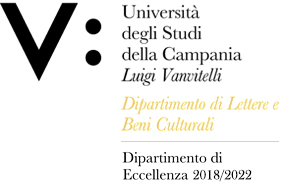Astrid PELLICANO
Insegnamento di GEOGRAFIA POLITICA ED ECONOMICA
Corso di laurea in LETTERE
SSD: M-GGR/02
CFU: 6,00
ORE PER UNITÀ DIDATTICA: 30,00
Periodo di Erogazione: Secondo Semestre
Italiano
| Lingua di insegnamento | Italiano |
| Contenuti | Il corso si propone di fornire le conoscenze di base della geografia, articolata nelle componenti politiche ed economiche. Si occupa di studiare come le comunità umane si organizzano sul territorio e come le condizioni socio-ambientali ed economiche condizionano la distribuzione dell’uomo sulla terra. |
| Testi di riferimento | CERRETI C., MARCONI M., SELLARI P., Spazi e poteri. Geografia politica, geografia economica, geopolitica, Laterza, Bari-Roma, 2019 (capitoli, 1, 2, 3, 16, 17, 18, 19, 20, 21). |
| Obiettivi formativi | 1) Conoscenza e capacità di comprensione - Lo studente dovrà dimostrare di avere compreso in modo sufficiente gli argomenti del programma. |
| Prerequisiti | Non sono previsti prerequisiti. |
| Metodologie didattiche | Lezioni frontali (n. ore 30) soggette a valutazione in aula con prove intercorso e/o esercitazioni. Partecipazione a convegni, conferenze, seminari o escursioni didattiche da valutare. |
| Metodi di valutazione | 1 o 2 prove intercorso. |
| Altre informazioni | Indicazioni sui materiali di studio: |
| Programma del corso | Il corso affronta i seguenti argomenti: la geografia politica ed economica; |
English
| Contents | The course aims to provide basic knowledge of geography, political and economic components. The course analyses how the human communities organize themselves on the territory and how socio-environmental and economic conditions affect the distribution of man on earth. |
| Textbook and course materials | CERRETI C., MARCONI M., SELLARI P., Spazi e poteri. Geografia politica, geografia economica, geopolitica, Laterza, Bari-Roma, 2019 (chapters, 1, 2, 3, 16, 17, 18, 19, 20, 21). |
| Course objectives | 1) Knowledge and understanding - The student must demonstrate that he/she has sufficiently understood the topics of the program. |
| Prerequisites | No prerequisites. |
| Teaching methods | The course includes lectures (30 hours) subject to assessment in the classroom with tests or exercises. |
| Evaluation methods | 1 or 2 oral tests. |
| Other information | Information on study materials: |
| Course Syllabus | The course addresses the following topics: |








